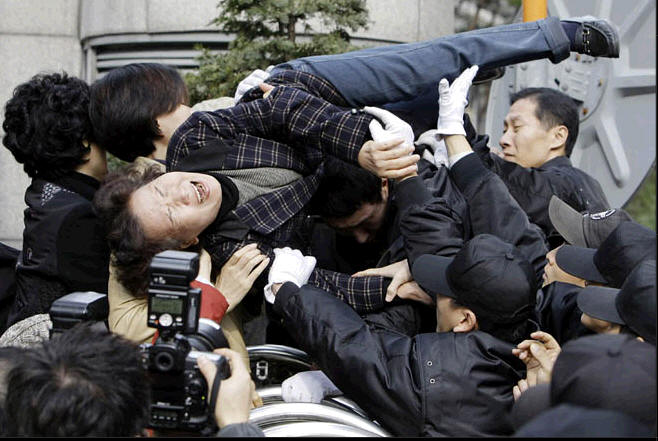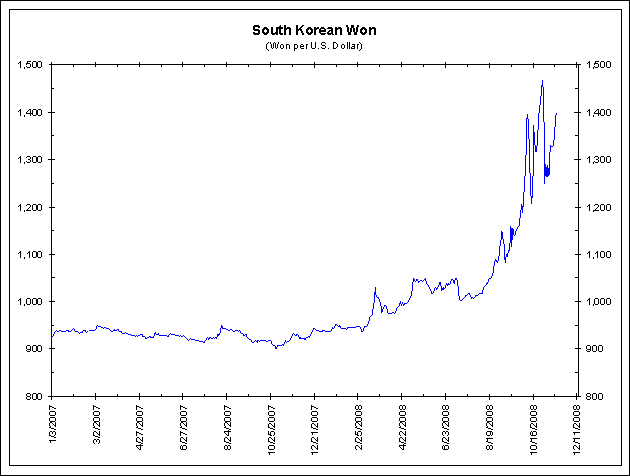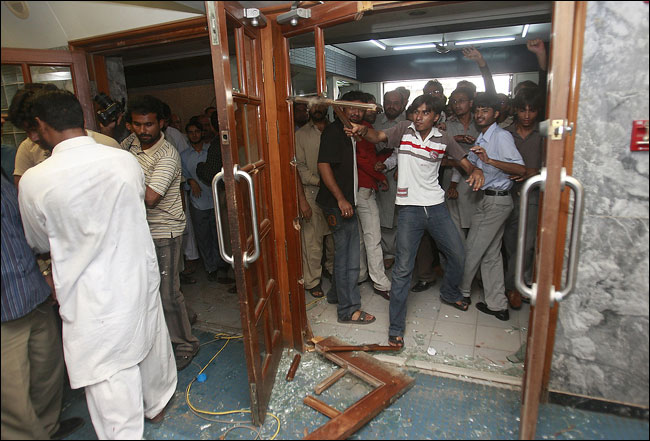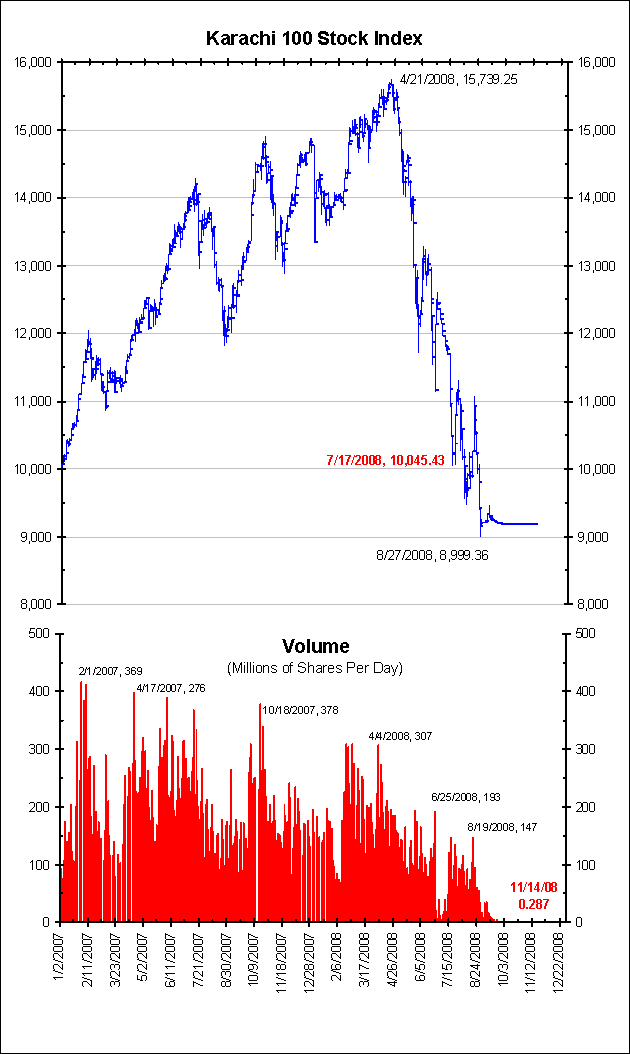
South Korean investors scuffled with bank security guards Friday [November 14, 2008] as they tried to enter Woori Bank headquarters in Seoul. The investors, angered by losses in the global credit crunch, claim the bank failed to properly advise them. (Lee Jin-man/Associated Press)
- The Wall Street Journal – Weak Won Isn’t Helping South Korea Firms
The South Korean won’s sharp fall against major currencies this year would seem a boon for an economy that relies on exports for about half of its output. But for some of South Korea’s biggest exporters, the upside has been lost due to higher costs of imported components and foreign-currency financings. … For the year, the won has lost 33% of its value against the U.S. dollar, 26.5% since the start of August. The drop against the yen has been even steeper, at 43% for the year. On Thursday, the won closed at 1,390 per dollar, a decline from its Wednesday close of 1,358 and 919 a year ago. The weakened won is changing behavior elsewhere. Consumers have cut back on foreign trips. - The Wall Street Journal – South Korea Says No Need to Tap IMF for Funding
The biggest financial crisis since the Great Depression has fueled an exodus of capital from South Korea, hurting local stocks and crushing the won against the greenback. Shin [Je-Yoon, Korea’s deputy minister for international affairs] acknowledged that outflows from the stock market may continue, but he doesn’t expect anything “drastic.” He also said the economy was under pressure as the nation’s exports feel the pinch from the crisis and global downturn. To spur growth, the government has cut interest rates and implemented fiscal stimulus. Shin said the door remains open for further fiscal stimulus, and the government still has much room to implement fiscal measures.
Comment Below is a chart of the South Korean Won.

<Click on chart for larger image>
Comment The South Korean investor riots are not the first time investor riots have been seen this summer. As we detailed on July 18, something similar happened in Pakistan, complete with its own stark images shown below.

Tires burned Thursday [July 17, 2008] in front of the stock exchange in Islamabad, Pakistan, as protesters vented anger over a two-week plunge in share prices. While Wall Street prices rose, Pakistani shares fell over concern about handling of the ailing economy.

Investors destroyed a door at the Karachi Stock Exchange in Pakistan on
Thursday [July 17, 2008] to protest slumping share prices.
Comment Contrarians will look upon these events and remember the famous line often attributed to Rothschild and “buy when there is blood in the street” (Rothschild actually said “buy the sound of cannons and sell the sound of trumpets”).
However, as the chart below shows, buying the riots of July 17 (highlighted in red) did not work out so well. Pakistani stocks are much lower since that date. Worse, in late August, the Pakistani government literally outlawed downticks, as the story below shows. This is why this market has literally shut down and has been trading sideways on the floor price with barely 1% of the volume seen just a few months ago. So, any money you had in Pakistan is now trapped. Hopefully this is not the path South Korea has started down.
Sophisticated Western capitalists may snicker at how emerging and frontier market capitalists are handling this crisis. But, are we handling it any better? The U.S. and Europe may not have outlawed downticks, but recently outlawed short sales. Are we really better or moving slower because our markets are not down as much?
So, don’t laugh at what happened in Pakistan and what is unfolding in South Korea. Let’s just hope it doesn’t happen in lower Manhattan.
- Bloomberg.com – (August 28, 2008) Pakistan Stock Index Is Little Changed; Trading Limits Remain
The exchange on Aug. 28 set the previous day’s stock prices as a bottom limit for trading. Securities can trade within the 5 percent daily limits “but not below the floor-price level” set on Aug. 27, the exchange said. Seventy-three of the benchmark index’s 100 constituents were unchanged today. “The market went on hibernating,” said Khurram Schehzad, a research analyst at Invest Capital & Securities Ltd. “The situation is expected to get a little clearer after the elections on Sept. 6.”

